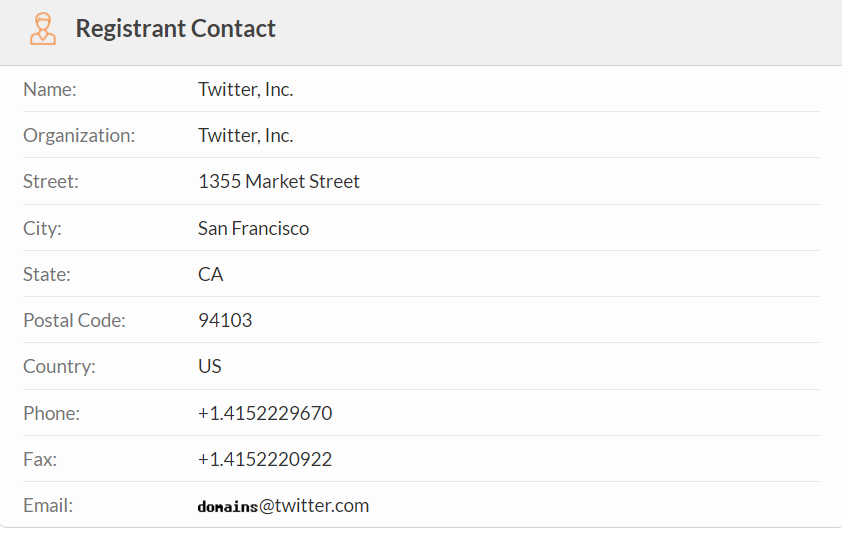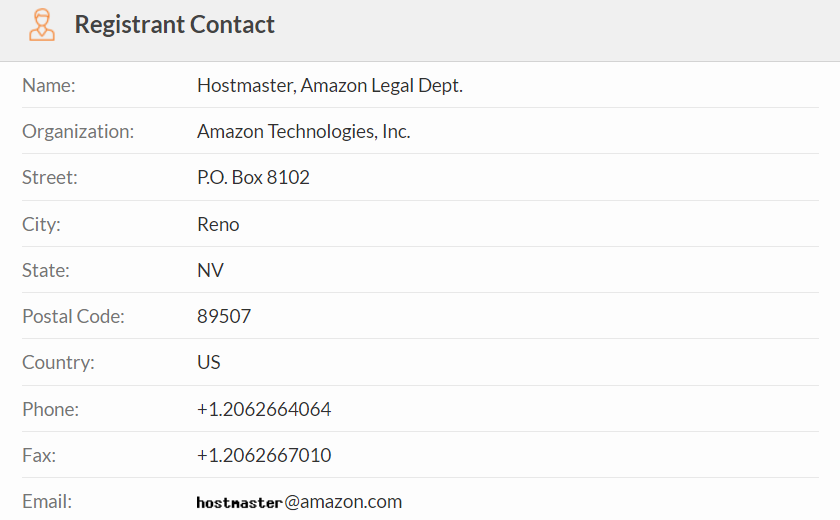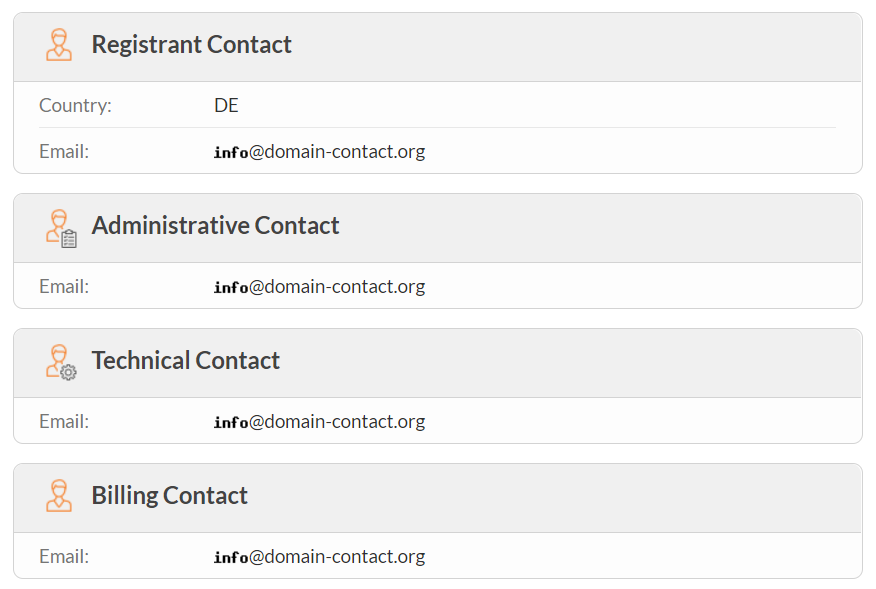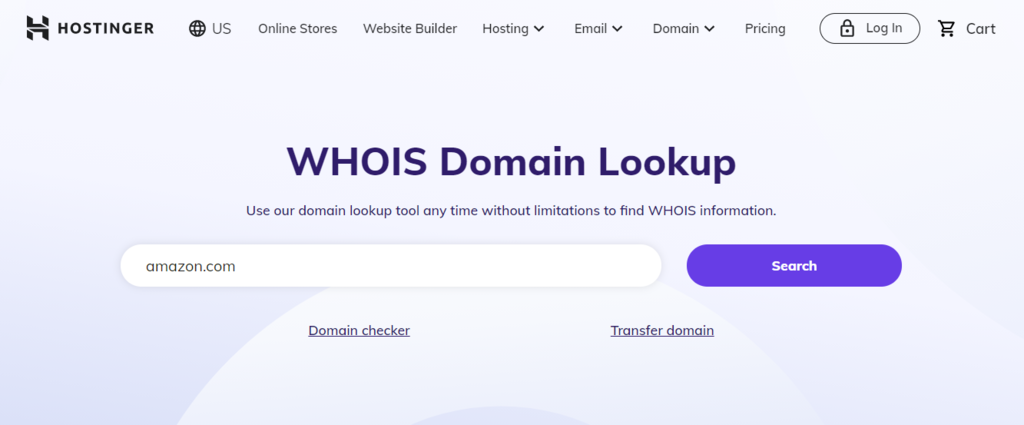Godaddy Domain Protection Worth It
Sep 10, 2021
Ratna
5min Read
Is Domain Privacy Worth It? A Deeper Look Into Domain Privacy Protection
A website owner should constantly be on the lookout for hacking attempts and personal data breaches. Having data stolen from you can be alarming, especially if you manage a business website.
In 2020 alone, more than 1,000 cases of data breaches exposed the personal information of more than 155.8 million people in the United States. Furthermore, 86% of data violations were financially motivated.
One way to secure your website and personal data is by signing up for domain privacy protection. However, since it's a premium service, is it worth the money?
In this article, we'll discuss what domain privacy protection is and the main reasons why you need it.
What Is Domain Privacy Protection?
In the process of registering a domain name for a website, basic contact details such as your name, email address, phone number, and mailing address are required. Domain privacy protection is a security service that hides this information from the public WHOIS database.
WHOIS is short for "Who is responsible for this domain name?". Its database stores the internet registrant data and is accredited by ICANN, the Internet Corporation for Assigned Names and Numbers.
Since the database is available for the world to see, anyone who knows your domain name can access your contact details.
By enabling domain privacy protection, personal information connected to your domain will be masked. However, you do need to pay for the service.
Prices vary between different domain registrars. For example, here at Hostinger, it will cost you $5/year.
5 Reasons Why You Need Domain Privacy Protection
Reliable web hosting providers disclose how they use and store your details in their privacy policy, but that's not enough to protect your personal information.
Because of ICANN regulations, when registering a domain, your personal data must be made public by default – that is the main reason why domain privacy is needed. Here are some other reasons why it may be necessary.
1. It Protects the Contact Details of the Domain Registrant
The world has access to your domain registration information through the WHOIS database. So anyone can easily see your contact details, including hackers, scammers, and competitors.

If your website is hacked, your business will suffer, and customers' data can get stolen as well. You'll lose the audience's trust and potential traffic. Plus, it may take some time to recover from reputational damage.
You will reduce the potential of experiencing the problems mentioned above if you use domain privacy protection.
2. It Prevents Spam Emails
Domain privacy protection is a way to prevent spammers from reaching you. People who use WHOIS data for their benefit mostly focus on contact information, commonly email addresses, from newly registered domains for marketing purposes.
You might suddenly get a lot of spam emails offering various products and services. Don't blindly answer these types of emails, and be wary of opening links or attachments as they might contain viruses or other malware.
Domain privacy protection will use a dummy email address that regularly changes to mask your actual email address.
3. It Prevents Scam Phone Calls
Phone numbers are also what telemarketing companies tend to take from the WHOIS directory. When your phone number is publicly available, there's a chance you'll be flooded by various marketing and sales calls.
A scammer might also contact you, marketing fake products and services. Or worse, offering domain registration renewal services when it's your domain is nearing the expiration date. Contact your registrar first before purchasing services or providing information on these types of calls.
If you enable domain privacy, your phone number won't be shown in the contact details section, protecting you from spam calls and scammers.
4. It Prevents Domain Theft
Domain theft or hijacking is when someone changes your domain's registration information without your permission. This is possible by accessing your email address and domain registrar account.
Hackers can use your domain to aid other cyber-attacks like malware installation. Moreover, there's a chance they might use it for phishing.
In other words, they might create web pages identical to the ones on your website, especially pages that collect sensitive customer data.
Losing control of your domain can lead to financial loss, regulatory and reputational damages.
The dummy email address will give hackers an extra obstacle by enabling domain privacy protection if they try to break into your account.
5. You Can't Use Fake Personal Information When Registering a Domain
When it comes to domain registration, you have to use your actual contact details for security purposes. The person or company listed as the registrant of the domain name will always be the legal owner from the standpoint of ICANN.
Using false contact information may lead to a legal dispute about who owns the domain name. It's essential to use legitimate contact information, especially for businesses – it can affect customers' trust and loyalty to your brand.
GDPR and Domain Privacy
For European Union citizens, the personal information connected to your domain name is automatically protected by the General Data Protection Regulation (GDPR).
ICANN also implemented the Temporary Specifications for gTLD Registration Data to adjust to the regulations of the GDPR. So even if your personal information is private, some data are still available to the public, such as:
- Your Internet Protocol (IP)
- Sponsoring domain registrar
- Domain's registration and expiration dates
Is Domain Privacy Protection Available For Every Domain?
Not every domain can get privacy protection – it depends on the top-level domain (TLD) you use.
Domain name privacy is usually available for most common top-level domains, such as .com, .net, .org, and .co. However, you might find that it's not available for TLDs such as .mobi, .asia, .istanbul, and .space.
This is because some registrars don't allow the service due to some of their rules and regulations.
For the complete list of TLDs that can't be protected, check our guide on how to enable WHOIS privacy protection.
How to Check a Domain's Contact Details
Searching a domain's information through WHOIS is called a WHOIS lookup. When you enter a domain name on a WHOIS database search bar, a request is sent to the domain's registrar, and the data is then presented.
Here's how to perform a WHOIS lookup:
- Visit the WHOIS Domain Lookup page.
- Type in a domain name on the search bar – for example, amazon.com. Then click Search.
- Scroll down to see the Registrant, Administrative, and Technical Contact information.
If the site owner didn't apply for domain privacy protection, their company details are visible to the public.

On the other hand, the personal information of domain owners who use privacy protections won't show up. A dummy email address replaces even the actual email.

Hostinger also provides a WHOIS tool that shows WHOIS data on domain name registration. As a user, you can check if the personal data connected to your domain is secured or not.
If domain privacy protection is enabled, you will see "REDACTED FOR PRIVACY" as the registrant and admin contact information.

Conclusion
Personal data security is important to all website owners. Hacking attempts and data violations occur more frequently than you might expect.
Not many website owners know that when you register a domain, your contact info is available publicly on the WHOIS database. This can be a problem, especially for business owners, as most data breaches are financially motivated.
Hence, domain privacy protection is one way to secure the personal data connected to your domain. Even though it adds a bit to your website hosting costs, the security value it offers is definitely worth the money.
Godaddy Domain Protection Worth It
Source: https://www.hostinger.com/tutorials/is-domain-privacy-worth-it
Posted by: hebertidentradmus1951.blogspot.com

0 Response to "Godaddy Domain Protection Worth It"
Post a Comment